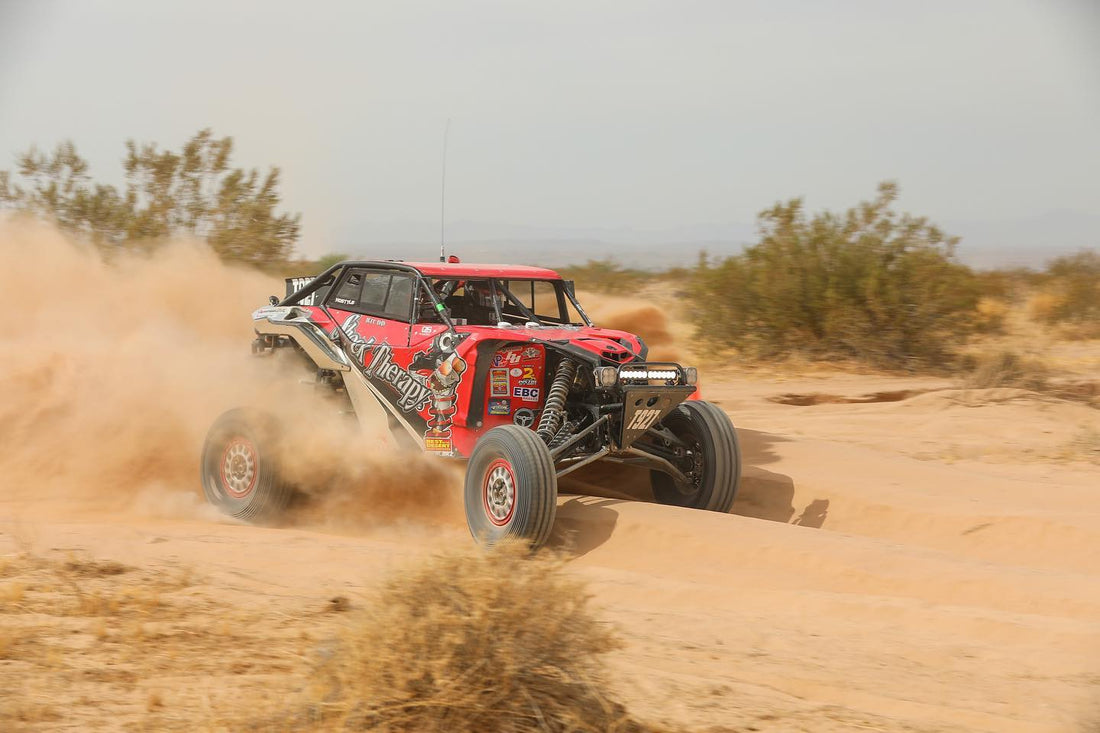Utility Terrain Vehicles, or UTVs, are an extremely essential component of the powersports industry in today's world. Not only are they used in off-road racing, but they serve many other purposes such as towing and hauling in different industries. UTVs are rugged machines with powerful engines that produce a lot of horsepower and offer great torque; but... do you know that UTV’s weren’t invented outright?
Instead, they were a result of evolution in the automotive industry. Different characteristics of different types of vehicles combined with some innovations resulted in the existence of UTVs. Once the UTVs were in the market, their popularity only grew with time. In fact, there were times (such as the '08 recession and the COVID Pandemic) when markets of ATVs and motorcycles were hit negatively due to economic instability, however, UTVs still managed to see an increase in sales. Today, UTVs connect and bring people together in the off-roading scenario. They offer thrill, enjoyment and a unique chance to interact with nature. Popular producers of UTVs are Can-Am, Honda, Polaris, Yamaha and Kawasaki, but all UTVs have the following distinctive features:
- Off-road compact design
- At least four wheels
- Non-straddle seating
- Steering wheel
- Foot pedals
- Roll cage
Let us now go back into history to find out the origins of the UTVs and the popular models that grabbed everyone’s attention and helped UTVs make their way into the automotive industry.
There wasn't ever a moment when people realized that UTVs were "here." They evolved from a number of predecessors - hence the reason for all of the wacky names we give them. A "side by side" was not originally a synonym for a "rov" or "utility task vehicle."
Jeeps, introduced in 1941, were the first mass-produced off-roaders. The Jeeps, however, were much too heavy to be used in settings desirable by modern UTV drivers. Dune Buggies, first Frankensteined in the 1950s, offered a stripped-down look to vehicles that was more lightweight and adaptable to modification for drag or off-road use. Many early dune buggies were popularly used on beaches - but were unable to tackle larger dunes.
AATVs, the larger amphibious off-road vehicles, were introduced in the 1960s and proved to be largely unpopular due to their niche market and higher price point. Also, they were heavy. The most influential and direct predecessor to the modern UTV has to be, of course, the regular ATV. ATVs originated from three-wheelers and weaker 4-wheel machines that evolved into the power sport ride we know today. The term "ATV" did not originally prove synonymous with "four wheeler" or "quad" until the 80s when the form became standardized.
In the late 80s, as consumers had experienced all of these various off-roaders, it was time for an affordable supercar designed specifically for off-roading. The UTV was introduced initially as the Kawasaki Mule, which was somewhere between an ATV and a truck. It looked like a golf cart for all intents and purposes, but was much more powerful under the hood.
The Yamaha Rhino in 2004 didn't make major changes to the look of a UTV, but it evolved the feel and ride to a new level. No longer were UTVs simple utility vehicles that reflected "utility task" more than "utility (and) terrain." The Polaris RZR was the vehicle to finally launch the UTV industry into its modern era.In 2007, the RZR ditched the golf-cart look for an aggressive racing look. It was the second major UTV (after the Arctic Cat Prowler in 2006) that was designed specifically for recreational driving. Unlike the Prowler, however, the RZR completely redesigned what a UTV could be. And shocks have only been growing larger ever since.
It may surprise some that the modern UTV is only 13-14 years old. In the future, we will likely see a variety of further evolutions that take not only the UTV world, but all of the off-roading industry into unforeseen territory.
Vehicles That Influenced the UTV:
1. Jeeps
2. Dune Buggies
3. Amphibious ATVs
4. ATVs
Models That Made an Impact and Boosted the UTV Market:
1. Kawasaki Mule
2. Yamaha Rhino
3. Polaris RZR
Thank you for reading this article. We are a world-class suspension tuning and component company based in Phoenix, Arizona. We make original products right here in the USA and ship worldwide to all customers. Whether you are a casual owner or a racing enthusiast, we shall make sure to place you FIRST in any situation. Purchase our sway bars, toe links, shocks, ride improvement systems, and more at www.shocktherapyusa.com. For more information on Shock Therapy, keep up with us on our other Social Media:
FACEBOOK | www.facebook.com/shocktherapyllc
YOUTUBE | www.youtube.com/shocktherapyllc
INSTAGRAM | www.instagram.com/shocktherapyusa
BITCHUTE | www.bitchute.com/utv
MINDS | www.minds.com/shocktherapy
REDDIT | www.reddit.com/r/utvshocktherapy

